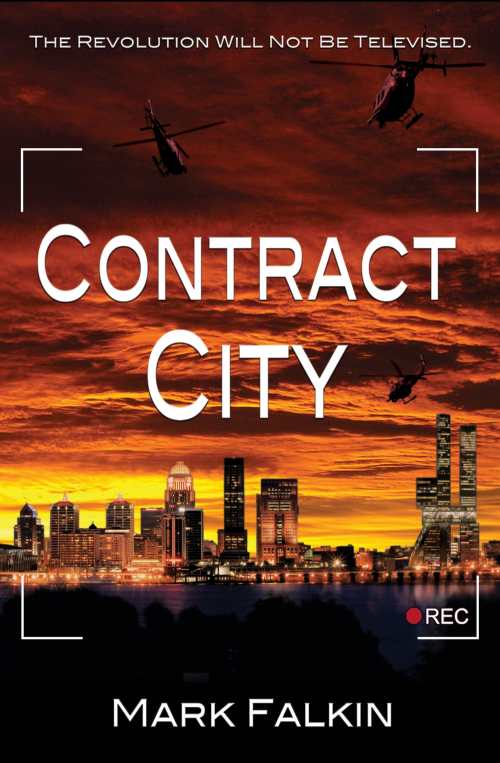Contract City
May 08, 2015Contract City

Reviewed by Amanda Silva
Falkin animates this dystopian YA novel with timeless depictions of what often feels like uncharted terrain bridging childhood and adulthood.
Contract City, Mark Falkin’s YA novel, set in Tulsa, Oklahoma, renamed “The City of the Future,” features a sharp female protagonist who is an aspiring filmmaker. Sara Paige Christie is a compelling narrator, driven to understand a world divided against its violent past.
Tulsa has become a “contract city,” meaning all aspects of its governance and operations are privatized. Motivated by lingering questions and persistent mysteries, Sara films the world around her in an effort to understand her reality and challenge those who refuse to face it head on. Censorship is presented as an acceptable action, fought by only a few. This does not escape Sara’s notice as she pushes the envelope with what she captures on film, wondering all the while if her work will ever reach the mainstream.
Although the story is set in the future, Falkin animates his story with timeless themes and honest illustrations of what often feels like uncharted terrain bridging childhood and adulthood. It is populated by memorable characters who drink, smoke, swear, and engage in, or at least posture knowledge of, sexual experiences. Falkin further deepens the story by connecting with the reader on family dynamics surrounding divorce, religion, sibling interaction, and teenage angst.
The strength in this narrative is Falkin’s ability to weave history and allusions into a story set in 2021. While most of these references are likely recognizable to the typical YA reader, if they are not, it is encouraging to think that Falkin’s work will inspire those readers unfamiliar with his references to do some research, uncover their meanings, and thereby gain greater insight into his narrative.
Contract City is an engaging, suspenseful portrayal of a world that, although imagined, feels all too familiar. The pursuit of truth and the courage required to right a wrong, especially when those in the wrong are the mightier majority, is a provocative notion that should be planted and nurtured in the minds of all readers, regardless of age, but especially of the YA genre.
Disclosure: This article is not an endorsement, but a review. The author provided free copies of his/her book to have his/her book reviewed by a professional reviewer. No fee was paid by the author for this review. Foreword Reviews only recommends books that we love and make no guarantee that the author will receive a positive review. Foreword Magazine, Inc. is disclosing this in accordance with the Federal Trade Commission’s 16 CFR, Part 255.